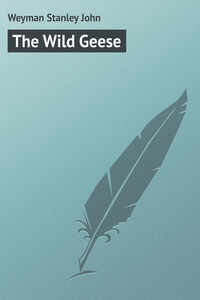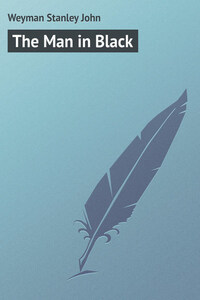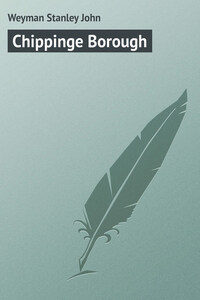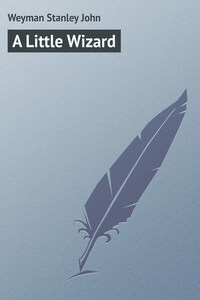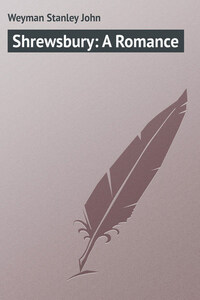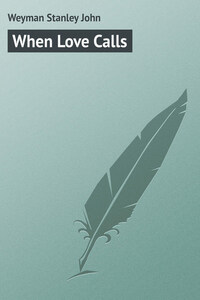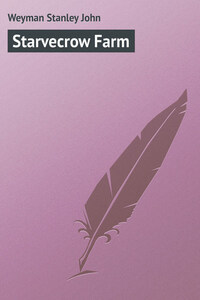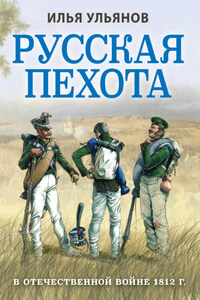CHAPTER I
ON BOARD THE "CORMORANT" SLOOP
Midway in that period of Ireland's history during which, according to historians, the distressful country had none – to be more precise, on a spring morning early in the eighteenth century, and the reign of George the First, a sloop of about seventy tons burthen was beating up Dingle Bay, in the teeth of a stiff easterly breeze. The sun was two hours high, and the grey expanse of the bay was flecked with white horses hurrying seaward in haste to leap upon the Blasquets, or to disport themselves in the field of ocean. From the heaving deck of the vessel the mountains that shall not be removed were visible – on the northerly tack Brandon, on the southerly Carntual; the former sunlit, with patches of moss gleaming like emeralds on its breast, the latter dark and melancholy, clothed in the midst of tradition and fancy that in those days garbed so much of Ireland's bog and hill.
The sloop had missed the tide, and, close hauled to the wind, rode deep in the ebb, making little way with each tack. The breeze hummed through the rigging. The man at the helm humped a shoulder to the sting of the spray, and the rest of the crew, seven or eight in number – tarry, pigtailed, outlandish sailor men – crouched under the windward rail. The skipper sat with a companion on a coil of rope on the dry side of the skylight, and at the moment at which our story opens was oblivious alike of the weather and his difficulties. He sat with his eyes fixed on his neighbour, and in those eyes a wondering, fatuous admiration. So might a mortal look if some strange hap brought him face to face with a centaur.
"Never?" he murmured respectfully.
"Never," his companion answered.
"My faith!" Captain Augustin rejoined. He was a cross between a Frenchman and an Irishman. For twenty years he had carried wine to Ireland, and returned laden with wool to Bordeaux or Cadiz. He knew every inlet between Achill Sound and the Head of Kinsale, and was so far a Jacobite that he scorned to pay duty to King George. "Never? My faith!" he repeated, staring, if possible, harder than ever.
"No," said the Colonel. "Under no provocation, thank God!"
"But it's drôle," Captain Augustin rejoined. "It would bother me sorely to know what you do."
"What we all should do," his passenger answered gently. "Our duty, Captain Augustin. Our duty! Doing which we are men indeed. Doing which, we have no more to do, no more to fear, no more to question." And Colonel John Sullivan threw out both his hands, as if to illustrate the freedom from care which followed. "See! it is done!"
"But west of Shannon, where there is no law?" Augustin answered. "Eh, Colonel? And in Kerry, where we'll be, the saints helping, before noon – which is all one with Connaught? No, in Kerry, what with Sullivans, and Mahonies, and O'Beirnes, that wear coats only for a gentleman to tread upon, and would sooner shoot a friend before breakfast than spend the day idle, par ma foi, I'm not seeing what you'll be doing there, Colonel."
"A man may protect himself from violence," the Colonel answered soberly, "and yet do his duty. What he may not do – is this. He may not go out to kill another in cold blood, for a point of honour, or for revenge, or to sustain what he has already done amiss! No, nor for vanity, or for the hundred trifles for which men risk their lives and seek the lives of others. I hope I make myself clear, Captain Augustin?" he added courteously.
He asked because the skipper's face of wonderment was not to be misread. And the skipper answered, "Quite clear!" meaning the reverse. Clear, indeed? Yonder were the hills and bogs of Kerry – lawless, impenetrable, abominable – a realm of Tories and rapparees. On the sloop itself was scarce a man whose hands were free from blood. He, Augustin, mild-mannered as any smuggler on the coast, had spent his life between fleeing and fighting, with his four carronades ever crammed to the muzzle, and his cargo ready to be jettisoned at sight of a cruiser. And this man talked as if he were in church! Talked – talked – the skipper fairly gasped. "Oh, quite clear!" he mumbled. "Quite clear!" he replied. "But it's an odd creed."
"Not a creed, my friend," Colonel Sullivan replied precisely. "But the result of a creed. The result, thank God, of more creeds than one."
Captain Augustin cast a wild eye at the straining, shrieking rigging; the sloop was lurching heavily. But whether he would or no, his eye fluttered back and rested, fascinated, on the Colonel's face. Indeed, from the hour, ten days earlier, which had seen him mount the side in the Bordeaux river, Colonel John Sullivan had been a subject of growing astonishment to the skipper. Captain Augustin knew his world tolerably. In his time he had conveyed many a strange passenger from strand to strand: haggard men who ground their shoulders against the bulkhead, and saw things in corners; dark, down-looking adventurers, whose hands flew to hilts if a gentleman addressed them suddenly; gay young sparks bound on foreign service and with the point of honour on their lips, or their like, returning old and broken to beg or cut throats on the highway – these, and men who carried their lives in their hands, and men who went, cloaked, on mysterious missions, and men who wept as the Irish coast faded behind them, and men, more numerous, who wept when they saw it again – he knew them all! All, he had carried them, talked with them, learned their secrets, and more often their hopes.
